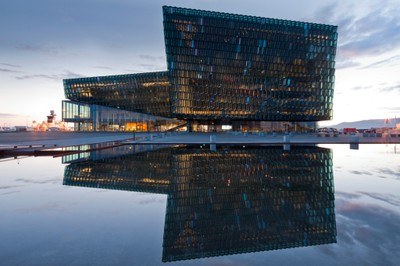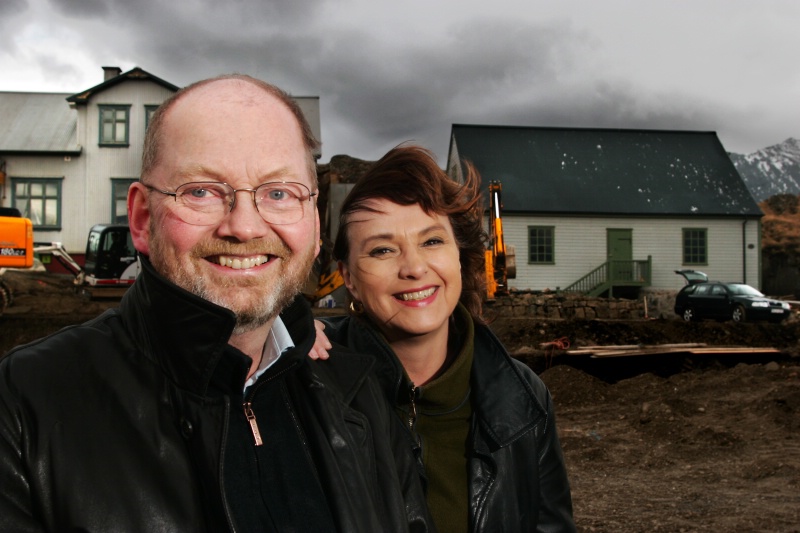Many jobs are also created when US producers come to Iceland to shoot their films. Icelandic computer games do well abroad and the country has renewed its export of literature after an 800 year long break. Culture is so deeply rooted in Icelandic identity that Icelanders themselves fail to realise how important it is.
No other Nordic nation consumes as much culture as Iceland. Icelanders attend theatres, cinemas and museum and they read more books than people in other Nordic countries. These are figures from the report The Extraordinary Extent of Cultural Consumption in Iceland by Ágúst Einarsson.
Cultural life is blooming. Iceland’s cultural offerings can be compared with what can be found in a major city abroad, says Professor Gunnar Kvaran at the Iceland Academy of the Arts, Listaháskóli Íslands.
“The offer has been enormous over the past few years and it is steadily growing. At the same time more people are attending various cultural events than ever before,” says Professor Kvaran.
“It isn’t just professional artists who contribute to cultural life. The general public has a need to create and contribute to cultural life in different ways,” he says.
The sagas are important
Professor of Economy Ágúst Einarsson at Bifröst University has specialised in the importance of culture for the economy and in working life. Professor Einarsson thinks culture is a prerequisite for the very existence of the Icelandic people. Sagas and traditional poetry built the nation’s identity and led to the emergence of a people called Icelanders.
“Culture’s role is visible in the large consumption of culture,” he says.
The Icelandic state uses an unusually large part of its GDP to fund cultural activities. The culture sector represents four percent of Iceland’s GDP while fisheries represent 12 percent and agriculture one percent. Culture is, in other words, incredibly important to the Icelandic economy.
A quarter of the labour market
Iceland comes out top when it comes to the number of jobs in culture, creative businesses and entertainment, according to the report The Extraordinary Extent of Cultural Consumption in Iceland. Only Holland has as many jobs in the creative sector as Iceland, but Sweden and Finland are not far behind.
“Many people are working in culture. A quarter of the labour force works in the creative sector,” says Professor Einarsson.
Major changes
Right now some major structural changes are taking place in the economy. New technology is increasingly important. There are also some dangerous changes and terrorism is a new threat. All of society is being shook up,” according to Einarsson, and other great changes are coming.
Professor Einarsson thinks Iceland has huge opportunities when it comes to culture, nature and creative work, if only the inherent possibilities of nature and technology can be harnessed as efficiently as they are within the film industry. Several American film studios come to Iceland every year to film Icelandic nature. The government has made this attractive by offering special tax rebates.
But Iceland’s cultural economy is also growing stronger elsewhere. It is not only Björk who has found global fame, but also bands like Sigurrós and Of Monsters and Men. Iceland has also begun exporting literature. Icelandic fiction has got a reputation and crime writers have been well received, not least in Germany.
“Book exports are growing again. Iceland has not exported literature since the middle ages when Icelandic bards traveled around selling their poetry and sagas,” says Professor Einarsson.
“Culture is so important to the Icelandic national identity that Icelanders themselves are not aware of the enormous cultural consumption and culture’s strong social position,” he says.

The Harpa concert hall
Despite the fact that Icelanders are keen consumers of culture, the Icelandic state has cut culture budgets by around one fifth in recent years, according to the Ministry of Culture.
At the same time Iceland has built the largest concert hall in the Nordic region, Harpa. The construction of Harpa had just begun when the financial crisis hit home in Iceland. Yet despite the crisis a decision was taken to finish the project.
It cost just over 1.2bn Swedish kronor (€145m) to build Harpa, and it opened last year. Professor Einarsson reckons Harpa will strengthen Iceland’s cultural activity in the future.
“There was no concert hall in Iceland. I used to teach in the morning in the same hall which the Iceland Symphony Orchestra used for their concerts in the evening,” says Einarsson.
Both Gunnar Kvaran and Ágúst Einarsson believe the Harpa concert hall will be very important to the development of Iceland’s cultural life for many decades to come.





